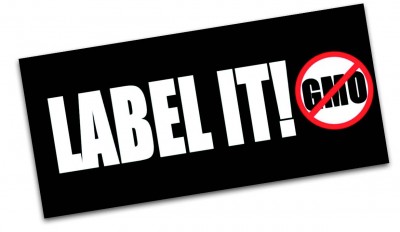|
Listen To The Article
|
Monsanto and junk food manufacturers allegedly met behind closed doors in Washington State to generate a battle plan to thwart the GMO labeling bill. Food Democracy Now reports that the Grocery Manufacturers Association (GMA) is the top donor in the fight to kill the I-522 campaign to label genetically modified food. I-522 is a citizen-led initiative operating on more or less a shoestring budget.
The same organization has reportedly spent $472,500 to prevent Americans from knowing what is inside food purchased at the supermarket. When the GMA became involved in the fight to defeat the Prop 37 GMO labeling bill in California last year, the group ponied up $2 million to help keep shoppers in the dark about genetically modified food ingredients.
DuPont and Monsanto are also digging into their coffers to help put down the GMO labeling legislation currently being considered in Washington. Monsanto has reportedly plunked down $242,156 and Dupont $171,281. Both amounts pale in comparison to what the biotech companies spent during the Prop 37 debate, but they will likely write more checks as the new legislation is discussed. During the California GMO labeling battle, Monsanto spent a whopping $8.1 million to help make sure their genetically modified food interests were represented. Dupont chipped in with $4.9 million to achieve the same goal.
Businesses and associations opposed to GMO labeling spent a total of $46 million to keep details about packaged food hidden. Supporters of organic food and labeling were outspent 6 to 1 during the California Prop 37 debate. The same California firms used to denounce the positive benefit of GMO labeling in California are also reportedly hard at work to thwart the latest attempt to inform Americans about genetically modified ingredients in food.
The public relations firm reportedly spearheading the “No on 522” campaign is Bicker, Castillo, and Fairbanks. Winner and Mandabach Campaigns is also once again joining in the anti-GMO labeling debate. The firm purchased $34 million worth of television air time during the California Prop 37 fight.
If GMO seeds and genetically engineered food is as safe as Monsanto and the USDA would like us to believe, why is the simple act of informing the public about what they are buying so terrifying? As previously reported by Off The Grid News, President Barack Obama stated during an Iowa campaign stop that Americans had a right to know what was in their food. Apparently, that was just another broken promises.
Without A Doubt The Best Kept Secret In Self-Reliance Gardening…
A Food Democracy Now release about the I-522 GMO labeling bill stated:
“Right now Monsanto and the GMA are building a war chest to defeat GMO labeling in Washington and they’re using the same team that lied to us in California. Think they have something to hide? We’re very close to victory and they know it. After 20 years of silencing America’s right to know what’s in our food, the biotech industry is getting desperate to stifle the growing number of Americans who are demanding labeling of genetically engineered foods!”
GMO labeling legislation recently passed in both Maine and Connecticut. Although it remains unclear exactly what the Grocery Manufacturers Association has planned, some unnamed industry officials believe a coordinated attack against genetically modified food labels and the creation of a national labeling standard could be forthcoming.
A Grocery Manufacturers Association release about GMO labeling reads:
“We have reached a pivotal point in this effort and believe now is the time to bring together a broad coalition to confront these challenges. As the policy debate surrounding this issue moves forward, GMA will continue to work with its supply chain partners to inform lawmakers and consumers about the significant negative impacts such labeling requirements will have on both businesses and consumers.”
The only negative impact GMO labeling could have on the American buying public is an unnecessary price increase. Food companies must already adhere to an established national labeling standard focused on health details such as calories and a listing of ingredients. There is no logical reason why adding a few lines of text would result in an even higher supermarket checkout receipt.
Those who oppose I-522 GMO labeling and similar pieces of legislation have argued that genetically modified ingredients are healthy and not distinguishable from natural products. Major Grocery Manufacturers Association members include General Mills, Coca Cola, and Kraft. A host of groups concerned about food safety have dared to disagree with biotech giant Monsanto and the GMA, and more GMO labeling bills are being authored in a several dozen states and in Congress.
The GMA statement went on to claim that American consumers have a “high degree of confidence in the US food supply.” I know, you probably had to stifle a laugh or a curse word, but the group apparently believes the USDA and FDA have done their jobs and we are all pleased as punch with the results. The Grocery Manufacturers Association went on to claim that public confidence would be eroded if shoppers were actually permitted to know what is inside the food they are buying.
 “Yes on I-522” spokeswoman Elizabeth Larter had this to say about fighting for genetically modified food labels:
“Yes on I-522” spokeswoman Elizabeth Larter had this to say about fighting for genetically modified food labels:
“People are talking about this issue. They really care. They want to know what is in their food. [Shoppers should be able to say] it’s my choice. It’s my decision. It’s my right to know. We know the sodium levels, the sugar levels in foods that already are labeled.”
I-522 legislation was ignored by Washington state legislators during their recent session, so the GMO labeling bill will be placed on the ballot in November for a public vote.
Growing and raising our own food is truly the only way we will know exactly how natural the items are that go onto our dinner plates. Unfortunately, not everyone can have a garden large enough to provide all their veggies, or a fruit tree grove, or a beautiful rural farm. The USDA and FDA should be vocally supporting not just GMO labeling bills, but putting an end to genetically modified seeds and chemical pesticides. Realistically, such actions by the federal agencies will likely never come as far too many Monsanto former executives have been appointed to key posts by the Obama administration.
 Off The Grid News Better Ideas For Off The Grid Living
Off The Grid News Better Ideas For Off The Grid Living





